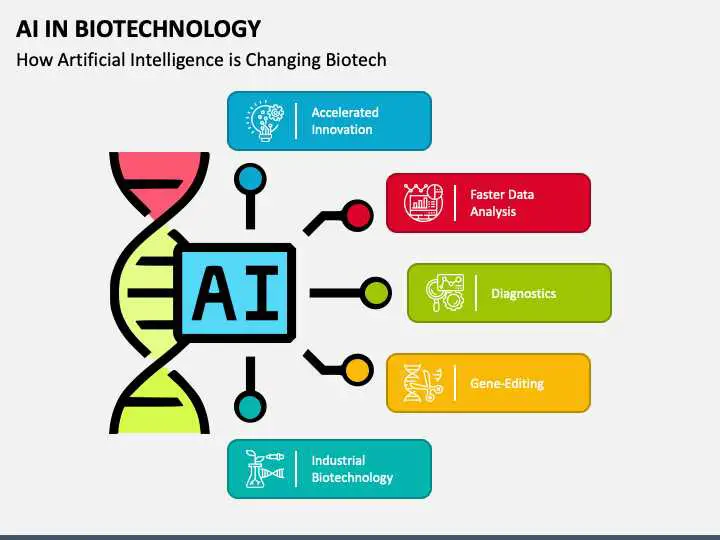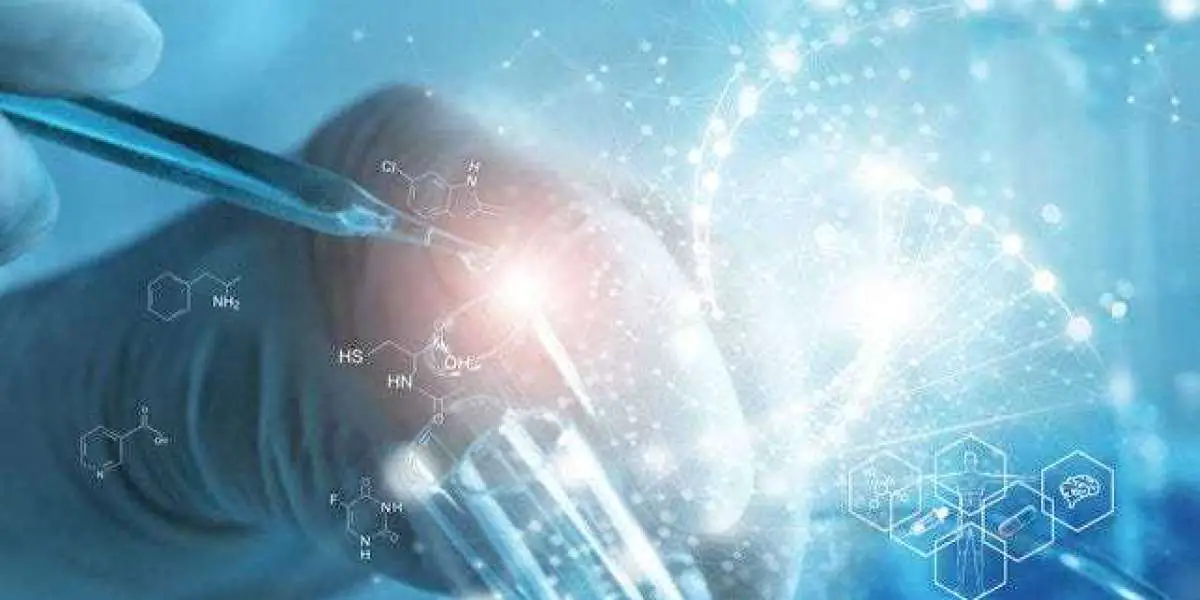In recent years, artificial intelligence (AI) has emerged as a game-changer in the field of biotechnology, transforming the way we approach drug discovery, genomic analysis, and disease diagnosis. By leveraging advanced machine learning algorithms and big data analytics, AI is revolutionizing healthcare research and development, offering unprecedented opportunities for innovation and breakthroughs. In this blog, we'll explore how AI is reshaping biotechnology, the benefits it brings to researchers, clinicians, and patients, and the potential it holds for the future of medicine.
Leveraging Natural Language Generation (NLG) in Biotechnology:
Unlocking the potential of Natural Language Generation(NLG) in biotechnology promises to revolutionize how researchers communicate their findings and how patients access medical information. NLG algorithms can interpret complex biomedical data and scientific research findings, transforming them into easily understandable and accessible narratives. For instance, NLG can generate layman-friendly summaries of research papers, making scientific knowledge more accessible to the general public. Furthermore, NLG-powered chatbots and virtual assistants can provide patients with personalized information about their genetic predispositions, treatment options, and disease management strategies, enhancing patient education and empowerment. By leveraging NLG, biotechnology stakeholders can bridge the gap between scientific jargon and everyday language, fostering better communication, understanding, and collaboration in the healthcare ecosystem.
Empowering Biotechnology with App Developers:
Empowering biotechnology companies with the expertise of app developers is crucial for driving innovation and efficiency in various aspects of drug discovery, genomic analysis, and disease diagnosis. App developers possess the technical skills to design and develop mobile applications tailored to the unique needs of biotech research and medical diagnostics. These applications can facilitate tasks such as data visualization, genomic data analysis, clinical trial management, and patient monitoring. By hire app developer, biotechnology firms can create intuitive and user-friendly applications that streamline workflows, enhance collaboration among researchers, and improve patient care. Moreover, app developers play a vital role in ensuring that biotech applications comply with regulatory standards and data privacy requirements, safeguarding sensitive medical information and maintaining trust with patients and healthcare providers. With the assistance of app developers, biotechnology companies can accelerate the pace of scientific discovery and deliver impactful solutions that advance healthcare outcomes.
Utilizing Data Annotation Specialists in Biotechnology:
In the realm of biotechnology, harnessing the expertise of data annotation specialist is essential for advancing research and innovation in drug discovery, genomic analysis, and disease diagnosis. Data annotation specialists play a critical role in meticulously labeling and annotating vast datasets containing genomic sequences, molecular structures, and clinical data. By categorizing and tagging data points related to genes, proteins, mutations, and diseases, data annotation specialists enable biotech researchers to extract meaningful insights and identify potential targets for drug development. Moreover, these specialists contribute to the standardization and interoperability of biomedical data, facilitating collaboration and knowledge sharing within the scientific community. With the assistance of data annotation specialists, biotechnology companies can accelerate the discovery and development of novel therapeutics and diagnostics, ultimately improving patient outcomes and advancing the field of biomedicine.

AI in Drug Discovery:
One of the most significant contributions of AI to biotechnology is in drug discovery. Traditional drug development processes are time-consuming, costly, and often yield limited success rates. However, AI-powered algorithms can analyze vast amounts of biological data, including genomic sequences, protein structures, and chemical compounds, to identify potential drug candidates more efficiently. By predicting molecular interactions, simulating drug-target binding, and optimizing compound properties, AI accelerates the drug discovery process, leading to the development of novel therapeutics for various diseases, including cancer, infectious diseases, and rare genetic disorders.
Genomic Analysis and Precision Medicine:
AI is also revolutionizing genomic analysis, enabling researchers to unravel the complexities of the human genome and uncover insights into disease mechanisms and personalized treatment strategies. Through machine learning algorithms, AI can analyze genomic data from large-scale sequencing projects, identify genetic variations associated with diseases, and predict patient responses to different therapies. This approach, known as precision medicine, holds the promise of tailoring treatments to individual patients based on their genetic makeup, improving treatment outcomes, and reducing adverse effects. Additionally, AI-driven tools for genomic interpretation and variant prioritization help clinicians make informed decisions about patient care, leading to more accurate diagnoses and personalized treatment plans.
Disease Diagnosis and Medical Imaging:
In addition to drug discovery and genomic analysis, AI is transforming disease diagnosis and medical imaging, enhancing the accuracy and efficiency of diagnostic processes. Machine learning algorithms can analyze medical images, such as X-rays, MRIs, and CT scans, to detect abnormalities and assist radiologists in interpreting findings. By identifying patterns and anomalies that may be imperceptible to the human eye, AI algorithms help clinicians diagnose diseases earlier, leading to timely interventions and improved patient outcomes. Moreover, AI-powered diagnostic tools can triage patients, prioritize urgent cases, and reduce diagnostic errors, thereby optimizing healthcare resources and improving patient care delivery.
Challenges and Ethical Considerations:
While AI holds immense promise for biotechnology and healthcare, its widespread adoption also raises ethical, regulatory, and societal concerns. Issues such as data privacy, algorithm bias, and the responsible use of AI in clinical decision-making must be addressed to ensure patient safety and trust in AI-driven technologies. Moreover, there are challenges related to the integration of AI into existing healthcare systems, including interoperability, data quality, and clinician adoption. As AI continues to evolve, it's essential to strike a balance between innovation and ethics, leveraging AI to improve patient care while upholding ethical standards and patient rights.
Conclusion:
In conclusion, AI is revolutionizing biotechnology and healthcare, offering unprecedented opportunities for innovation and advancements in drug discovery, genomic analysis, and disease diagnosis. By harnessing the power of AI-driven algorithms and big data analytics, researchers and clinicians can accelerate scientific discoveries, tailor treatments to individual patients, and improve healthcare outcomes. However, realizing the full potential of AI in biotechnology requires collaboration between scientists, clinicians, policymakers, and industry stakeholders to address challenges, mitigate risks, and ensure responsible AI deployment. With continued innovation and ethical considerations, AI has the potential to transform the future of medicine, driving progress towards more personalized, precise, and effective healthcare solutions.



